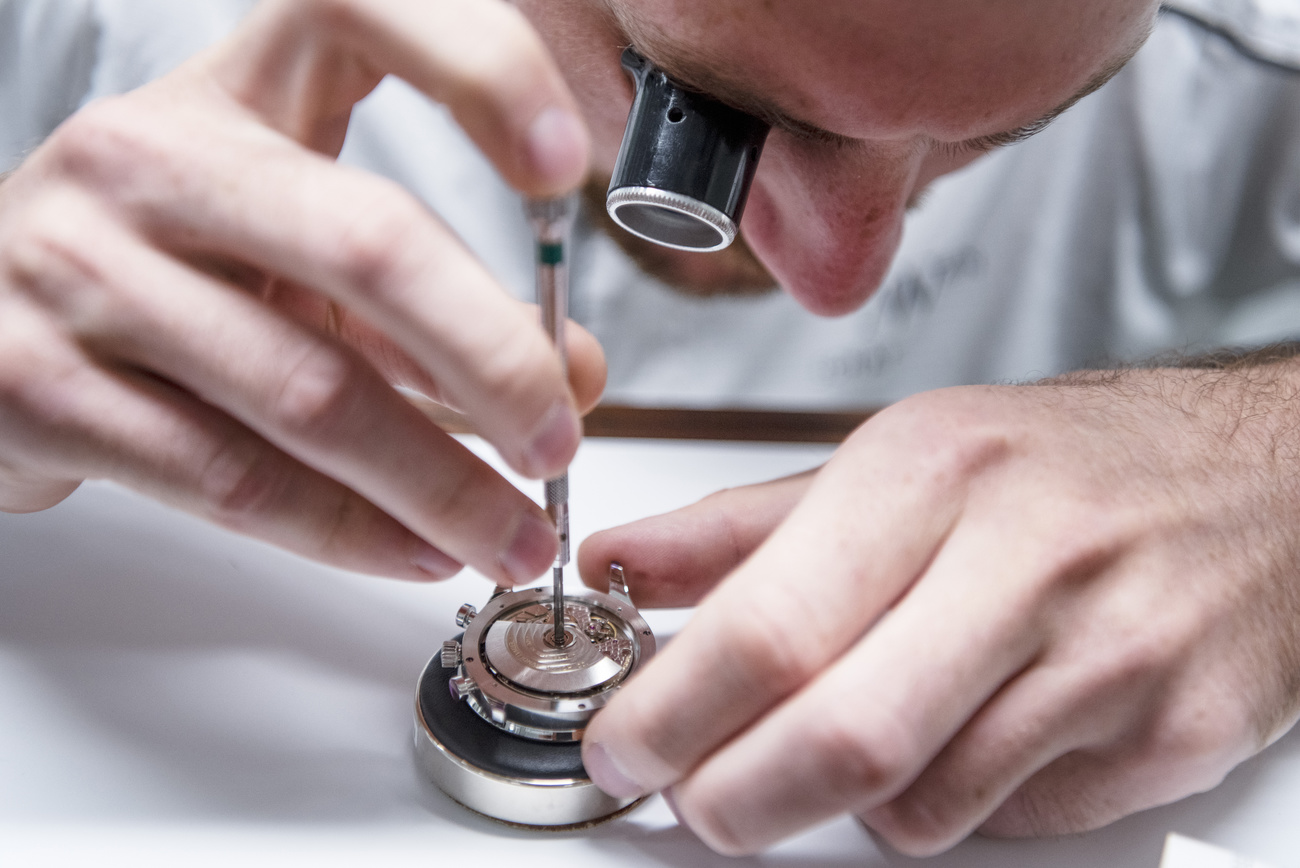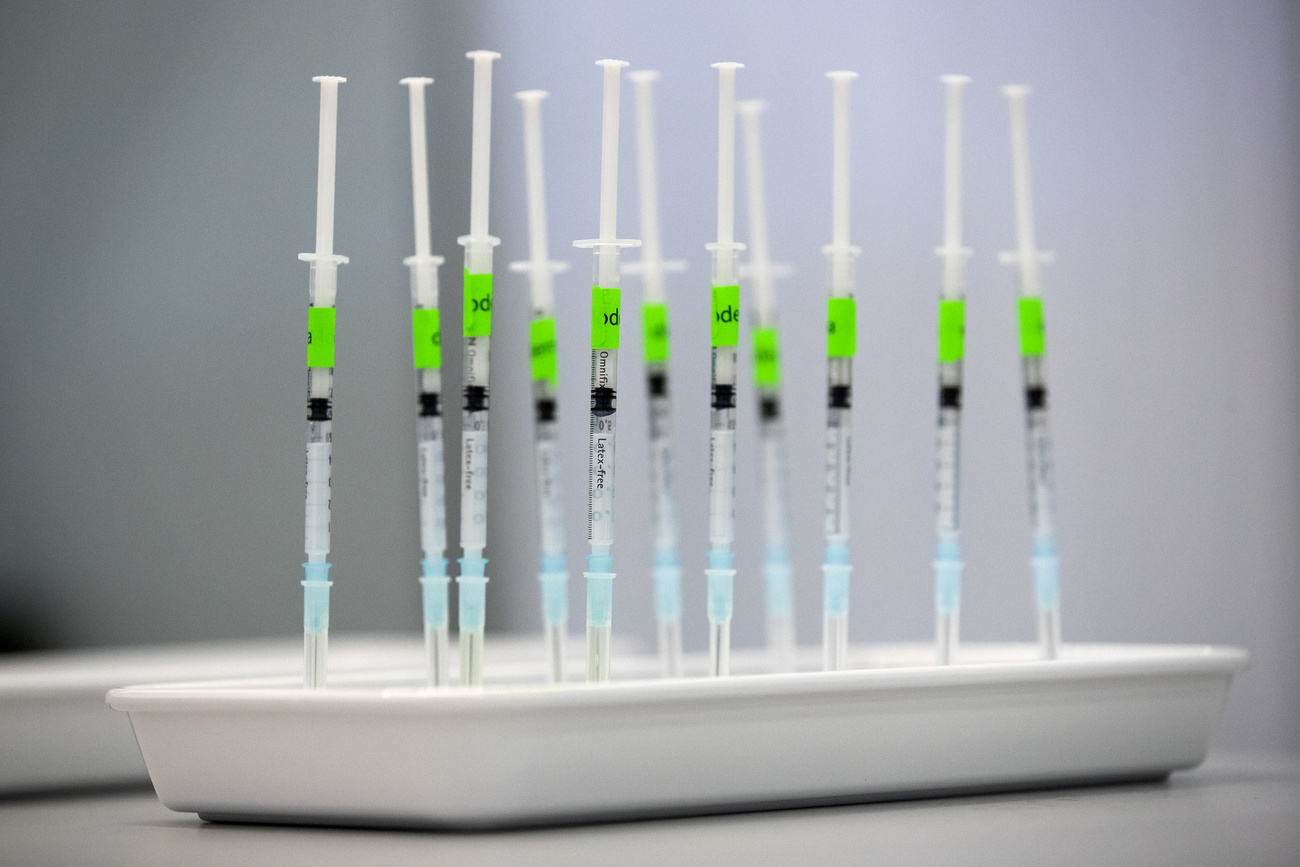
Switzerland Today
Dear Swiss Abroad,
Europe’s particle physics lab (CERN), near Geneva, has just celebrated its 70th birthday. On September 29, 1954, twelve member states ratified the founding convention of the European Organisation for Nuclear Research.
The anniversary also marks a turning point in CERN’s relations with Russia. It will soon be ending its collaboration with Moscow, with major consequences for its researchers.
In this selection, we also look at the loneliness of the elderly and Donald Trump's watches made in the mountains of Neuchâtel.
Happy reading!

CERN is preparing to end its collaboration with Russia on November 30. The decision, prompted by the
conflict in Ukraine, will affect around 500 Russian scientists and result in a loss of CHF40 million for the physics lab located near the Swiss-French border
north of Geneva.
In June 2022, following the Russian invasion of Ukraine, the CERN Council decided to end its cooperation with Russia and its Belarusian ally. This measure will come into force on November 30 of this year for Moscow and has already been in force since June 27 for Minsk. The two countries have five-year agreements with CERN, which the organisation has decided to terminate when they expire.
As a result, around 500 scientists affiliated to Russian laboratories will no longer be able to collaborate with CERN, as is already the case for around 15 Belarusian researchers. Around a hundred have been able to join non-Russian institutes, enabling them to continue their work with CERN.
Russia’s exclusion also has economic consequences: it means a loss of CHF40 million in funding for CERN’s Large Hadron Collider (LHC), which is being upgraded. In addition, Russian agencies and institutions contributed 4.5% of the budget for the LHC experiments, funding that will be covered by other members.

In a Swiss first, the Swiss government plans to compensate a person who suffered side-effects from the Covid-19 vaccine. Thirty other cases are currently being examined.
The person concerned will receive compensation of CHF12,500 plus an allowance of CHF1,360. They were able to claim a loss of income in their job, a spokesperson for the Federal Department of Home Affairs (DHA) told the Keystone-ATS news agency, confirming an earlier report by the German-language Sunday newspaper SonntagsBlick.
To date, the federal department has received 320 requests for compensation linked to the vaccine, 30 of which are being examined in detail. To obtain this compensation, a causal link must be established between the vaccine and the health problems claimed. It is then up to the Federal Office of Public Health to assess this possible link. It can therefore take several years from the time a claim is made for compensation to be paid.
In all, 17 million Covid-19 vaccines have been administered in Switzerland. Of these, Swissmedic, the authority responsible for authorising and monitoring therapeutic products, received a total of 17,575 reports of suspected reactions linked to Covid vaccines. Around 7,000 of these reports were described as serious by the people concerned. The average age of those concerned is 53.
- The Keystone-ATS report on SWI swissinfo.ch (in English)

Pro Senectute, a group that represents older people, is sounding the alarm: more than a third of people aged 85 and over in Switzerland suffer from loneliness, which can have serious consequences.
People aged 85 and over are more affected by loneliness than younger seniors, according to a survey published on Sunday by Pro Senectute’s Observatoire vieillesse. Among 65-74 year-olds, the proportion is around 24%, while it is just over 25% among 75-84 year-olds.
“Very old people have to cope more often with the death of their loved ones. Their social network shrinks. They also have more health problems,” explains Alexander Widmer, a member of the board of Pro Senectute Switzerland. However, the organisation points out that loneliness should not be confused with being alone, because being alone is not necessarily a source of suffering.
“Older people who feel lonely not only have a shorter life expectancy, but also suffer more often from high blood pressure and depression. They move less, are more stressed and more often suffer from dementia,” Widmer says. However, it is not easy for specialist organisations to reach the people concerned, who often find it difficult to talk about their loneliness and ask for help.
- The Keystone-ATS report on SWI swissinfo.ch (in English)
More

Donald Trump, the Republican presidential candidate, has just launched a luxury watch that bears his name and has a mechanism designed by a craftsman in La Chaux-de-Fonds. Trump hopes it will raise funds to finance his vote campaign.
“For us, it was a project like any other,” Olivier Moiry, founder of BCP Tourbillon, which designs and develops the movements for Donald Trump’s watch, told Swiss public radio, RTS. He explains that the order was quite ordinary, in terms of technical or design requirements. But he admits: “We rarely have a client who has generated so much attention.”
“I love gold, I love diamonds,” declared the Republican candidate in the promotional video for the watch bearing his name. This model is being produced in a limited series of 147, with each piece numbered. The former US president was awarded the first edition.
“Our work is watchmaking, not political commitment. The movement is standard, and we applied the same criteria to it as we do to all our customers,” says Moiry. The founder of the watchmaking company says that there were no political considerations behind the acceptance of this order. He also explains that the request arrived anonymously.
- The RTS story (in FrenchExternal link)

Photo of the day
Laura Bircher, 23, will be Switzerland’s candidate at the Miss Universe world final in mid-November. On Saturday evening, the young woman from Stans, canton Nidwalden, beat 18 other finalists from several cantons to take the Miss Universe Switzerland title.

In compliance with the JTI standards
More: SWI swissinfo.ch certified by the Journalism Trust Initiative









